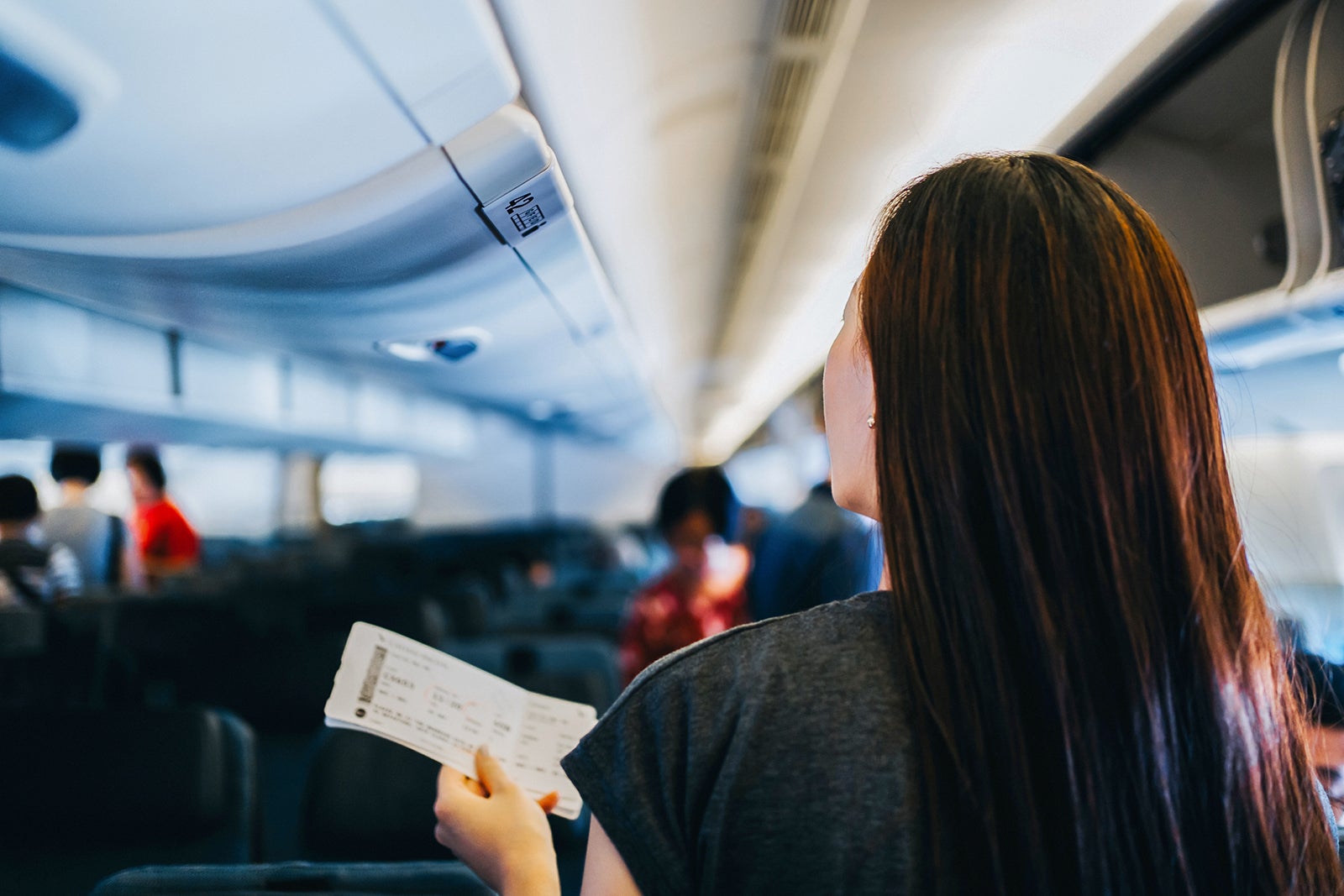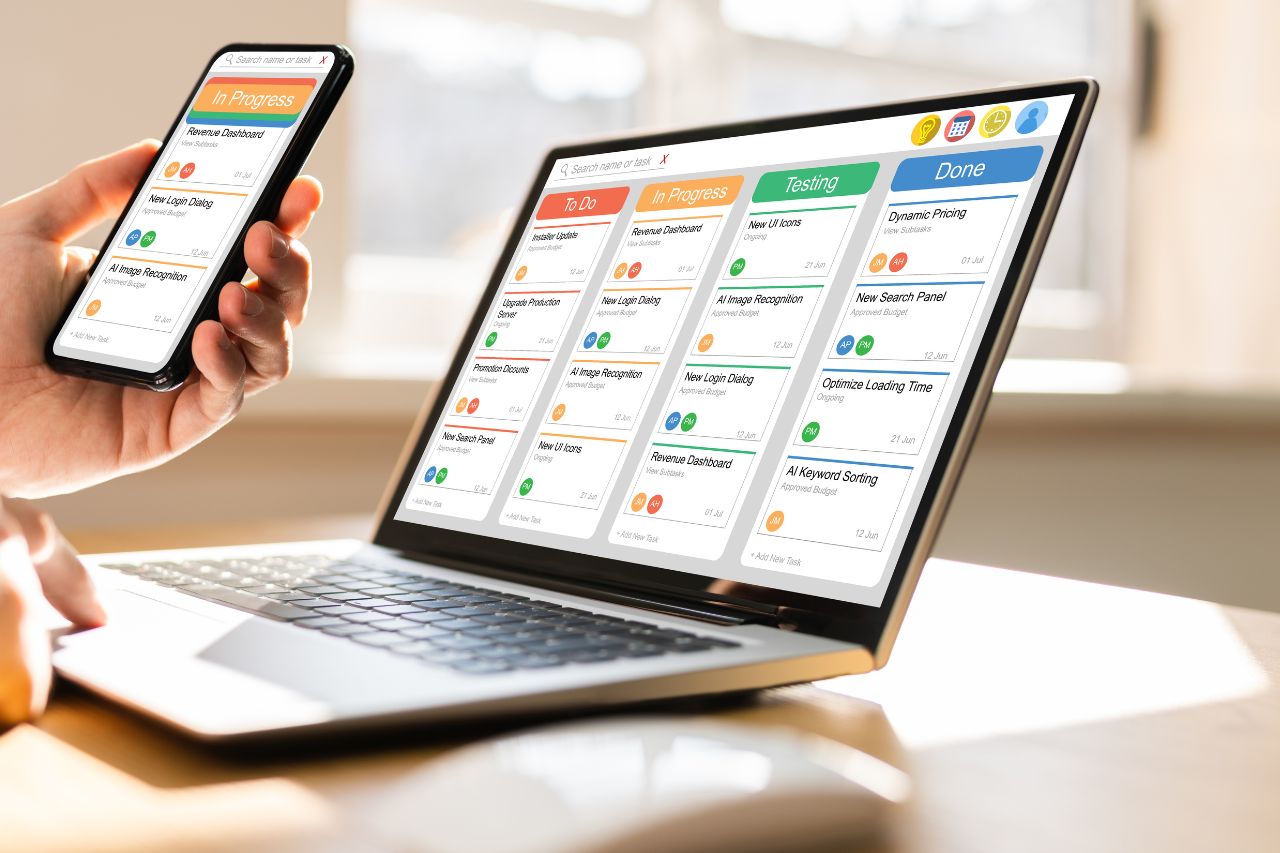Even during the glorious golden days of air travel, the middle seat was viewed as airline purgatory.
Fear of body overlap, being used as a pillow, limited access to the overheads and lavatory, and contested armrests (is the middle seat dweller entitled to full or shared use?), being stuck in the middle is a pain all flyers can relate to.
Most frequent flyers have, at some point, been asked to trade seats. Whether and how you should ask has become a hotly debated topic on social media with tales of plane seat entitlement, shoddy passenger etiquette, bare-faced lying and even seat-stealing.
TikTok exploded recently when traveler and content creator Surya Garg shared her story of how she had declined to trade seats with a mother who wanted to be next to her teenage son. The question of whether or not Garg should have switched ignited a heated debate on both sides of the, well, aisle.
So, what are the unwritten rules when it comes to asking your fellow passengers to move? And, should you feel bad about saying no? Here’s everything you need to know.
Airline seat strategies
As the flying experience has become more fraught and uncomfortable (the pitch of airplane seats has shrunk some 4 inches in the last decade) while prices have skyrocketed, it’s no wonder travelers have become hyper-sensitive to encroachments on their personal space from not only the airlines but also demanding fellow passengers.
For some travelers, being able to rest their head on the window during a red eye is a game changer, while others don’t want to risk their row’s aisle seat passenger sleeping for hours, limiting their own freedom of movement and time to organize their overhead belongings after landing. Others pony up more cash for a prime position window seat to take in the scenic views of Caribbean waters or iconic skylines during landing.
Now that advance seat assignments are considered a “perk,” generally cost more or require elite status, giving up your seat these days doesn’t just affect your comfort level — it often represents a financial loss.
Of course, if you’re flying on Southwest Airlines, that’s another seat strategy ballgame altogether in the first-come, first-served environment.
Sign up for our daily newsletter
It isn’t always anyone’s fault
Asking a fellow passenger to change seats generally comes with the assumption that you failed to take the appropriate measures to avoid drawing that short straw (like not paying up or booking too late) and now you expect your more forward-thinking passenger to carry the can.
If you take to the skies on a regular basis, you quickly realize that circumstances are often beyond your control.
There are all kinds of travel quandaries, ranging from missed connections to equipment swaps, or late-minute bookings due to personal emergencies, that even the savviest traveler can find themselves in a bind. While your instinct may be a hard and fast “no” to trading seats when asked, it’s still important to consider and empathize with any request.
Most airlines will do everything possible to ensure that a minor under 13 years of age is seated with a parent or guardian. But, it doesn’t always happen.
Several years ago, for example, I missed a connection when traveling with my then-7-year-old son. I was automatically rebooked on the next flight (which had already boarded) and the only remaining two seats on the plane were middle seats 10 rows apart. I apologetically requested a trade from the aisle seat passenger next to my son, and, unmoved, they simply responded, “no.”
Fair enough.
There was a long pause before a passenger several rows ahead offered his aisle seat to them and kindly offered to take my middle seat. There was a non-verbal acceptance — I assumed it was a like-for-like trade, but, in their mind, maybe it wasn’t. Either way, I’m pretty sure the man in the middle (reveling in his hero status while being furnished with drinks by me and the flight attendant) had a much more pleasurable trip than the unyielding passenger on the aisle.
Unspoken rules of trading seats
There are many implied rules and codes of conduct when it comes to flying and most of them boil down to just common courtesy.
If you are in the middle seat and there’s an empty aisle seat next to you, it’s expected that you’ll move on over to create space between you and the passenger in the window seat. (While it might be hard to fathom, there are people who do actually prefer the middle.) Who really owns the right to the armrest has long ignited debate and aviation experts and etiquette gurus tend to agree that the unfortunate denizen in the middle seat deserves both armrests.
Generally speaking, the unspoken rule when it comes to seat swaps is that only better or equivalent exchanges should be offered; maybe you lose an aisle seat, but gain some leg room in a bulkhead seat, or you trade your window seat next to the toilet for a middle seat at the front of the main cabin.
If you are proposing to trade seats because you want to be near your spouse or friends, or have a very tight layover, and you are offering a comparable seat (aisle for an aisle, window for a window), it’s always worth the ask and is generally viewed as acceptable.
If the seat trade is not equal, however, most experts and frequent flyers agree the only appropriate requests are if a family is separated from young children, or if a passenger needs care during flight from their traveling companion. There are times when you may not fully comprehend the rationale behind the trade and by hastily declining, you may end up feeling more uncomfortable than if you’d taken that middle seat.
That’s just not OK
A cardinal rule of seat swaps is that you should never take someone else’s seat before they board (and feign sleep once you are in it), create wild fantasist stories to try and self-upgrade your seat or falsely claim you have an equivalent seat to trade.
Passengers are quite within their rights to decline any seat trading offer unless told to do so by a flight attendant — that’s part of the airline’s “conditions of carriage,” which you agree to when you purchase your ticket. Such mandates generally occur for safety reasons, such as needing to balance the weight of the plane during take off, and refusing falls on the wrong side of the Federal Aviation Administration and you could be promptly removed from the plane.
So, don’t make it harder for them to execute their right to sit in the seat they paid for, selected or just lucked into by trying to stake a claim first.
How to get the seats you want
Surprisingly, middle-seat devotees do exist. But it’s less than 1% according to a social media survey by Virgin Australia last year.
If you want to improve your odds of a window or aisle seat, you should spend more for a main cabin seat. No-frills, basic economy fares come with many restrictions that vary according to each airline. United, for example, allows you to choose and pay for a seat assignment at the time of booking right up to check-in. Delta, however, only allows you to pick and pay for your seat between seven days and 24 hours before your flight.
If you are traveling with your family or in a group, you should book children on the same reservation as the adults in your party and do everything in your power to select seats for your entire family at the time of booking. This will increase the odds that your family will sit together during your flight.
If, due to extenuating circumstances, you are not sitting together, try to speak to the gate agent before boarding. Not only are gate agents the absolute authority when it comes to seat assignments, but it’s also much harder to convince a passenger to change seats once they are sitting comfortably and have already secured a precious overhead space.
Bottom line
When it comes to switching seats on planes, there are unspoken rules founded on what constitutes a fair trade. And even when a fair trade is possible, courtesy and goodwill certainly come into play on the part of both the one asking to trade and the one considering the swap.
Planning ahead and spending what’s required to lock in the seats you need can help you avoid that dreaded middle seat, but you should expect, at some point, your foresight (and seat assignment) may be roiled by anything from weather delays to last-minute emergencies.
While it’s perfectly fine — and well within your right — to decline a seat trade, empathizing with your fellow passenger’s needs and circumstances can often override any middle-seat malaise and build good karma.
Related reading:





















Discussion about this post